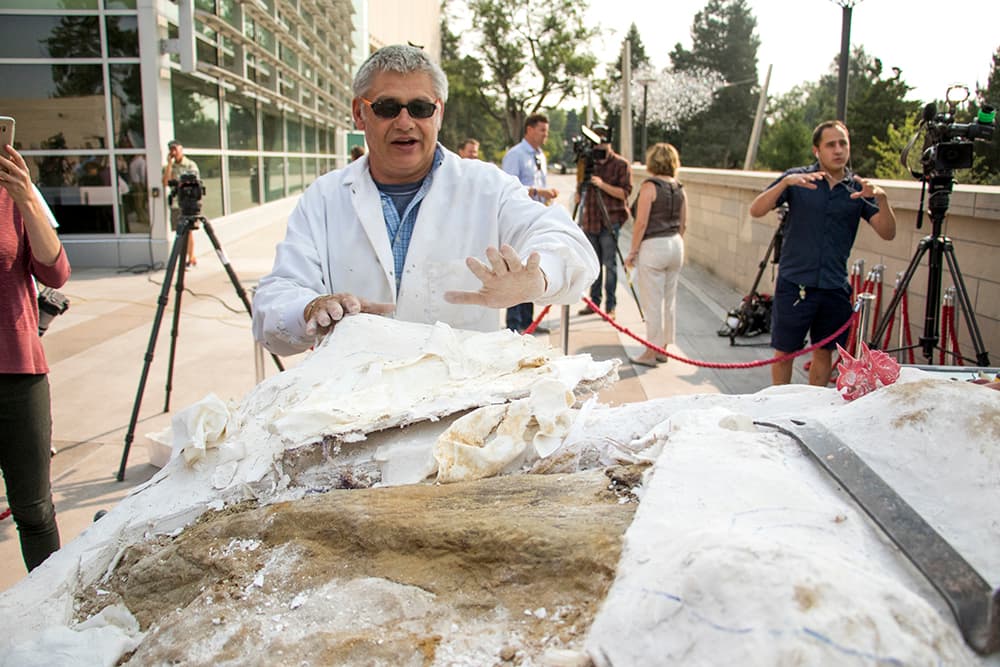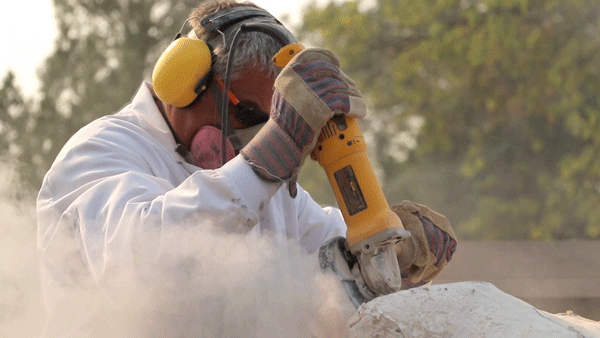
Last week, Mike Getty was on local news across the Denver metro area, wearing a white lab coat as he used an angle grinder to open a plaster pod containing triceratops bones that were recently discovered at a construction site in Thornton.
Getty died on Monday of an "unexpected" illness, according to the Denver Museum of Nature and Science, where he worked as chief fossil preparator.
In the statement, spokesperson Maura O’Neal said Getty died after "becoming ill while working on the triceratops excavation in Thornton." It was not a construction-related accident, she wrote.
Medical privacy laws, she said, prohibited the institution from saying more about what happened.
"The museum takes the health and safety of its staff, volunteers and guests very seriously. All emergency management and safety protocols were followed in accordance with best practices," the release stated.

When we met Getty last week, he was excited to talk about work on the discovery of the bones.
"As we mourn the loss of our dear friend and colleague," O'Neal's statement read, "we send our deepest condolences to the Getty family."
Getty grew up in Western Canada and loved paleontology from an early age, according to a staff biography. He worked at dinosaur sites across the American West and was described as one "of the great quarrymen of his time."
In Denver, he managed "one of the largest field teams in the country in their ambitious pursuit to understand ancient life through fossils," the biography stated.
The species Utahceratops gettyi was named after him.












